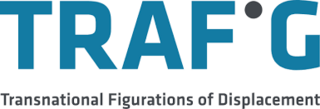
‘Nothing is more permanent than the temporary’ – Understanding protracted displacement and people's own responses
Etzold, Benjamin / Elvan Isikozlu / Simone Christ et al.Externe Publikationen (2022)
in: TRAFIG Synthesis Report 06/2022
DOI: https://doi.org/10.5281/zenodo.6490951
Open access
Across the world, 16 million refugees and an unknown number of internally displaced persons (IDPs) experience long-lasting conditions of economic precarity, marginalization, rightlessness and future uncertainty. They live under conditions of protracted displacement. Policy solutions often fail to recognise displaced people’s needs and limit rather than widen the range of available solutions.
This report brings together the central findings of the TRAFIG project’s empirical study in the Democratic Republic of the Congo (DRC), Ethiopia, Tanzania, Jordan, Pakistan, Greece, Italy and Germany. We engaged with more than 3,120 people in our three-year project.
Our analysis centres around five factors that shape conditions of protracted displacement:
- governance regimes of aid and asylum
- social practices and livelihoods
- networks and movements
- intergroup relations between displaced people and hosts
- development incentives and economic interactions
We present multiple findings on each of these themes. Moreover, this report addresses gender and class-based differences and mental health related challenges in constellations of protracted displacement as well as political dynamics that impact on people's own responses to protracted displacement.
Overall, our research shows that refugees, IDPs and other migrants by and large find protection, shelter, livelihood support, a sense of belonging and opportunities to migrate elsewhere through their personal networks. These networks often stretch across several places or even extend across multiple countries. While they are not a panacea for all challenges, people's own connections are an essential resource for sustainable and long-term solutions to their precarious situation. They must not be ignored in policy responses to protracted displacement. Understanding the needs and the local, translocal and transnational ties of displaced people is the foundation for finding solutions that last.

